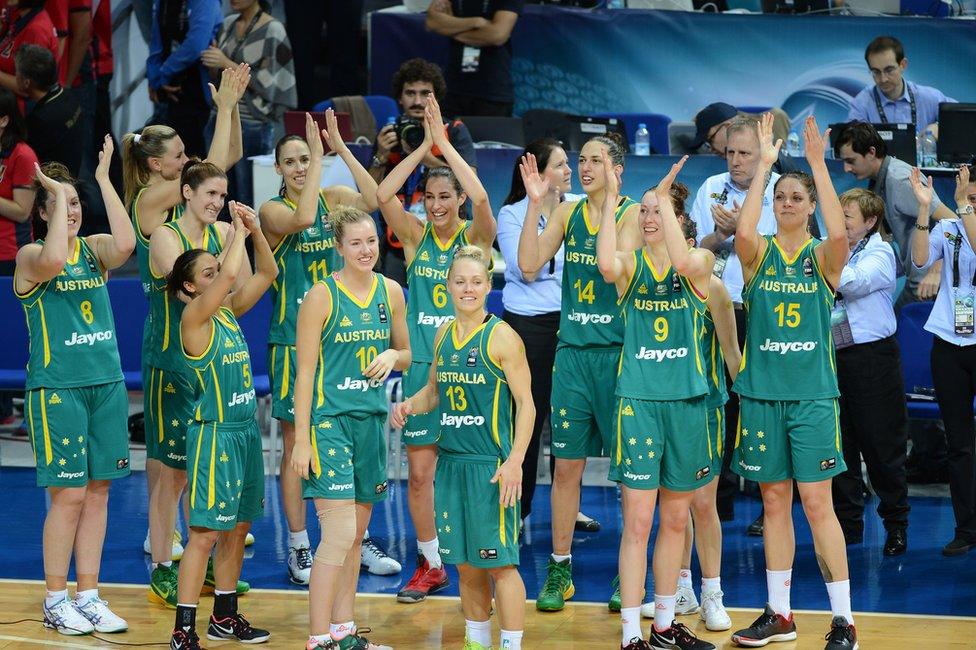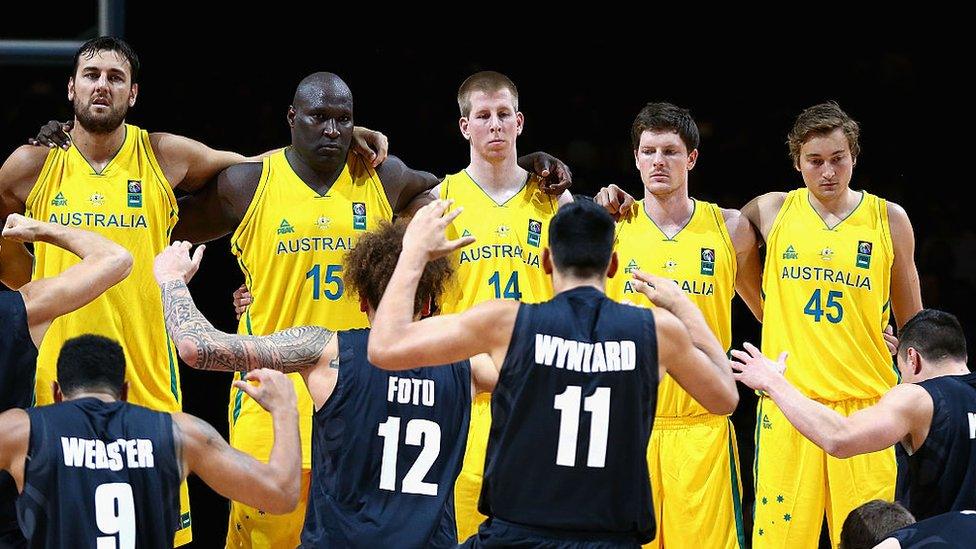Australia sport groups warned on gender travel policy
- Published

The Australian women's basketball team, known as the Opals, now travel at business class for international events following a 2012 furore
Australian sports groups have been told to end a longstanding practice where male athletes enjoy better travel standards than female counterparts.
The government said there was "no defensible reason" for this, and it could affect their future funding.
It is a move that comes after a 2012 public furore over the better treatment of the men's national basketball team.
They flew business class to the London Olympics while the more successful women's team flew economy.
The warning came in a letter sent this week to the top 30 funded sports organisations in Australia by federal sports minister Sussan Ley and Australian Sports Commission (ASC) chairman John Wylie.
"In 2016, we can think of no defensible reason why male and female athletes should travel in different classes or stay in different standard accommodation when attending major international sporting events," they said.
The letter said the ASC was "now proposing to make gender-neutral travel policies for senior major championships a condition of investment".
The commission is providing A$134m (£65m, $94m) a year currently.

The Australian men's basketball team (in yellow) is known as the Boomers
Ms Ley told the Australian Broadcasting Corporation: "Quite frankly, I was shocked and surprised to find that in every sport it isn't always the case that the guys and the girls fly and are accommodated at the same level of travel.
"I am prepared to tie the funding to compliance with this but I don't expect it to come to an argument - I know it won't, in fact."
Professional Footballers Australia told Reuters news agency that it welcomed the move and that it was "long overdue", while Cricket Australia said it still had different travel standards for men and women but it was "committed" to addressing discrepancies.
Following the 2012 controversy, Basketball Australia changed its travel policy and its women's team, known as the Opals, now also get to travel in business class to overseas events.